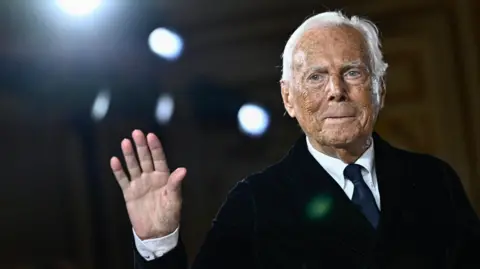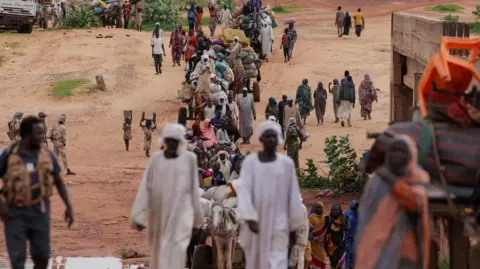Kamel Daoud's novel 'Houris' has made history by winning France’s esteemed Goncourt Prize, marking the first time an Algerian author has claimed this prestigious honor. The book delves into Algeria's harrowing civil war during the 1990s, a period that left an estimated 200,000 people dead from violence attributed to both Islamist fighters and the military. The narrative follows its protagonist, Fajr—a woman who has endured horrific injuries and carries the scars of her trauma. She recounts her story to the unborn child she carries, shedding light on the profound suffering experienced during this "dark decade."
The Goncourt committee praised 'Houris' for articulating the pain of this turbulent time in Algeria, especially as it pertains to the experiences of women. They noted that the work serves as a significant means of remembering history that complements traditional historical narratives. However, in Algeria, the reception of the novel is fraught with obstacles. The book lacks a local publisher, and the French publishing house Gallimard has been barred from participating in the Algiers Book Fair. Furthermore, Daoud's noteworthy achievement has gone largely unreported in Algeria's media landscape.
As an exile in Paris, Daoud faces potential criminal charges for discussing the civil war in his writing. A “reconciliation” law enacted in 2005 prohibits the "instrumentalisation of the wounds of the national tragedy," essentially silencing conversations about the civil conflict that scarred the nation. Daoud expressed concern about the lack of education around these events, stating that even his own daughter was incredulous about the war's atrocities, as they are seldom taught in schools.
Having worked as a journalist during that time, Daoud witnessed firsthand the staggering death toll and the manipulation of casualty figures by the authorities to shape public perception. His critical views of state narratives regarding both historical and contemporary issues, including the rights of women in Algeria, have put him at odds with a regime that he feels suppresses dissent.
Although some consider Daoud a “traitor” for his criticisms of Algeria and embrace of French identity, others view him as a revolutionary literary voice. In a post-award press conference, Daoud credited his freedom to write to his life in France, observing, "To write you need three things. A table, a chair, and a country. I have all three." His work seeks to encourage a fuller understanding of Algeria's history and ignite discussion about the complexities of freedom and gender in a country still grappling with the shadows of its past.


















